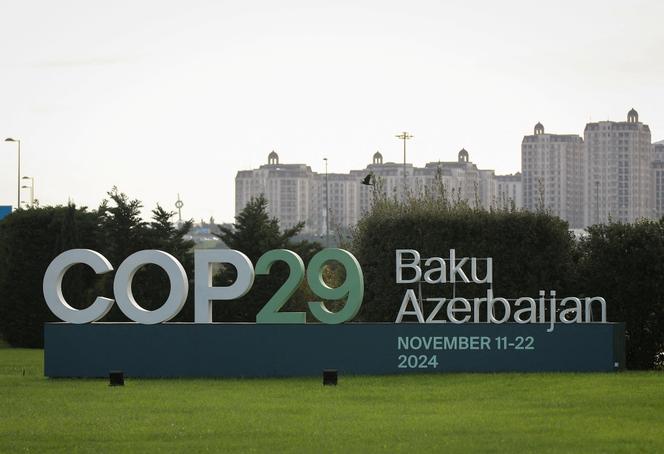


If there's one acronym to remember when navigating the acronym-ridden world of climate diplomacy in 2024, it's NCQG, for New Collective Quantified Goal on Climate Finance. The NCQG, in other words, a new global target on climate finance, will be at the heart of negotiations at the 29th World Climate Conference (COP29), in Azerbaijan, from November 11 to 22.
Starting in 2025, it will replace the one set in 2009, which called for developed countries to mobilize $100 billion a year for developing countries to help them reduce their greenhouse gas emissions and adapt to global warming.
This sum, which has become totemic, was reached and exceeded in 2022 ($116 billion), two years late, poisoning relations between North and South. For developing countries, this promise is not charity but a moral debt. Rich countries, historically responsible for climate disruption, must help the poorest, who pollute little but pay the heaviest price.
The NCQG is essential for rebuilding trust between countries and increasing emissions reductions. It is one of the conditions for pushing countries to deliver more ambitious climate plans at COP30 in Belem, Brazil, in 2025. In short, "cash or clash," as one observer put it.
The development of this new objective was already provided for in the Paris Agreement in 2015. But the 197 States have not managed to resolve any of the sensitive issues, whether it concerns the amount, the contributors or the beneficiaries. The election of Donald Trump in the United States further increases uncertainty.
Dealing with the ever-increasing impacts of the climate crisis now requires trillions of dollars. The committee responsible for financial issues at the climate conference put the global needs of developing countries at between $5.8 and $5.9 trillion to implement climate plans by 2030, an inventory that is nevertheless incomplete. Meanwhile, an independent group of experts on climate financing suggests $2.4 trillion a year by 2030 for these countries (not including China), of which $400-500 billion would come from public international finance.
The challenge lies equally, if not more, in the nature and distribution of funds, between the public and private sectors. The $100 billion target combines public, bilateral and multilateral financing (80% of the total in 2022), private money mobilized by the public and export credits.
India, the Arab group and the Africa group have proposed that developed countries should now mobilize between $1 and $1.3 trillion a year, with a significant share of public money. These are unthinkable sums for rich countries, especially in a context of budgetary austerity. "One trillion dollars of public money is impossible. Official development assistance amounts to $223 billion a year. The majority of needs will be met by the private sector," said one European negotiator.
You have 61.61% of this article left to read. The rest is for subscribers only.
